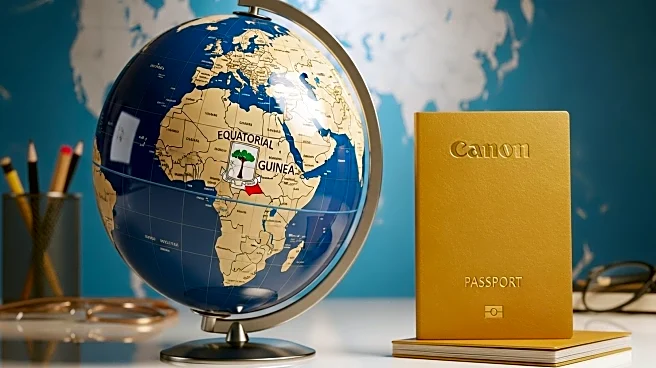What's Happening?
The Trump administration is set to grant a temporary waiver to Teodoro 'Teddy' Nguema Obiang, the Vice President of Equatorial Guinea, allowing him to bypass U.S. corruption sanctions for travel to a U.N. gathering in New York and other American cities. This decision is aimed at countering growing Chinese influence in Equatorial Guinea and supporting U.S. business interests, particularly in the oil and gas sector. Obiang, known for his lavish lifestyle funded by alleged corruption, has faced legal actions in multiple countries. While easing restrictions for Obiang, the administration is simultaneously tightening visa policies for other foreign nationals, including Palestinian Authority leaders and delegations from Iran and Brazil.
Why It's Important?
The waiver for Obiang highlights the Trump administration's strategic approach to international relations, balancing diplomatic and economic interests. By allowing Obiang entry, the U.S. aims to strengthen ties with Equatorial Guinea, potentially curbing Chinese and Russian influence in the region. This move could benefit U.S. companies operating in the oil and gas sectors, ensuring continued investment and expansion. However, the broader visa crackdown reflects a complex policy stance, potentially affecting diplomatic relations and international perceptions of U.S. immigration policies.
What's Next?
The decision to grant the waiver may lead to increased scrutiny and debate over U.S. foreign policy priorities, particularly regarding human rights and corruption. Stakeholders, including U.S. businesses and international human rights organizations, may react to the administration's contrasting visa policies. The impact on U.S.-Equatorial Guinea relations will depend on how effectively the waiver fosters goodwill and counters foreign influence.
Beyond the Headlines
The waiver decision raises ethical questions about prioritizing economic interests over human rights concerns. It also underscores the geopolitical complexities of U.S. foreign policy, where strategic alliances may conflict with global anti-corruption efforts. Long-term implications could include shifts in regional power dynamics and the role of U.S. businesses in influencing foreign policy.











